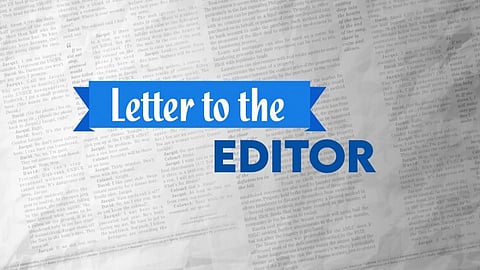
- NEWS
- the EDIT
- COMMENTARY
- BUSINESS
- LIFE
- SHOW
- ACTION
- GLOBAL GOALS
- SNAPS
- DYARYO TIRADA
- MORE

Dear Editor,
The recent firm and swift rejection by Malacañang of claims that the arrest of former President Rodrigo Duterte constituted a “state kidnapping” underscores the delicate balance between upholding the rule of law and safeguarding civil liberties.
The accusation, stemming from Duterte’s vocal criticism of the current administration and the International Criminal Court’s (ICC) investigation into his war on drugs, paint a picture of political persecution.
However, the Palace’s insistence on due process and adherence to legal procedures paints a contrasting picture — one of a government committed to justice, not vengeance.
At the heart of the controversy lies the fundamental question of accountability, as while the Palace stressed that any legal action against Duterte would be based on evidence and due process, the former president’s supporters perceive a politically motivated witch hunt.
This perception is not without its roots, because whether we like it or not, Duterte’s tenure was marked by a no-holds-barred approach to governance, and his pronouncements often challenged conventional legal and diplomatic norms.
The ICC’s investigation, regardless of its eventual outcome, casts a long shadow over his legacy, fueling anxieties about potential legal repercussions.
The term “state kidnapping” is a loaded one as it evokes images of extrajudicial abduction and the silencing of dissent, a far cry from the procedural complexities of a legal arrest. By labeling the arrest in such stark terms, Duterte’s camp aims to rally public sentiment and frame the issue as a blatant abuse of power.
This strategy, while politically expedient, risks blurring the lines between legitimate legal processes and acts of state-sponsored oppression.
However, the Palace’s response — while legally sound — must be carefully navigated because the government’s insistence on due process is crucial, not only to ensure a fair trial for Duterte, but to maintain public trust in the justice system.
Any hint of political interference or selective application of the law would undermine the very principles the Palace claims to uphold.
Also, the timing of this controversy adds another layer of complexity — with the midterm elections looming, the political landscape is already charged. The arrest of Duterte could further polarize the nation, exacerbating existing divisions and destabilizing the political climate.
The administration must therefore tread carefully, ensuring that any legal action is perceived as impartial and devoid of political motivations.
Meantime, the ICC’s investigation is inextricably linked to the domestic political discourse, as the international body’s pursuit of justice for alleged crimes against humanity raises questions about national sovereignty and the limits of executive power.
Duterte’s defiance of the ICC, coupled with his supporters’ claims of political persecution, creates a narrative of resistance against external interference.
The public’s perception of this controversy will largely depend on the transparency and impartiality of the legal processes involved. The administration must demonstrate a commitment to upholding the rule of law, not just in words but in actions. This includes ensuring that Duterte’s rights are protected, regardless of the gravity of the allegations against him.
It is safe to say that the Duterte arrest controversy serves as a reminder of the thin line between law and liberty. While the pursuit of justice is essential for a functioning democracy, it must be tempered with respect for civil liberties and the avoidance of political persecution.
The administration’s ability to navigate this complex terrain will have far-reaching implications for the country’s political stability and its standing in the international community.
However, the challenge lies in ensuring that the pursuit of accountability does not morph into a tool for political retribution because again, the line between enforcing the law and engaging in political vendettas is thin, and the administration must remain vigilant in upholding the principles of justice and fairness.
And then, only then, can the public be assured that the arrest of a former president was not an act of state kidnapping, but a necessary step in upholding the rule of law.
Ian Desales
desales.ian@gmail.com
